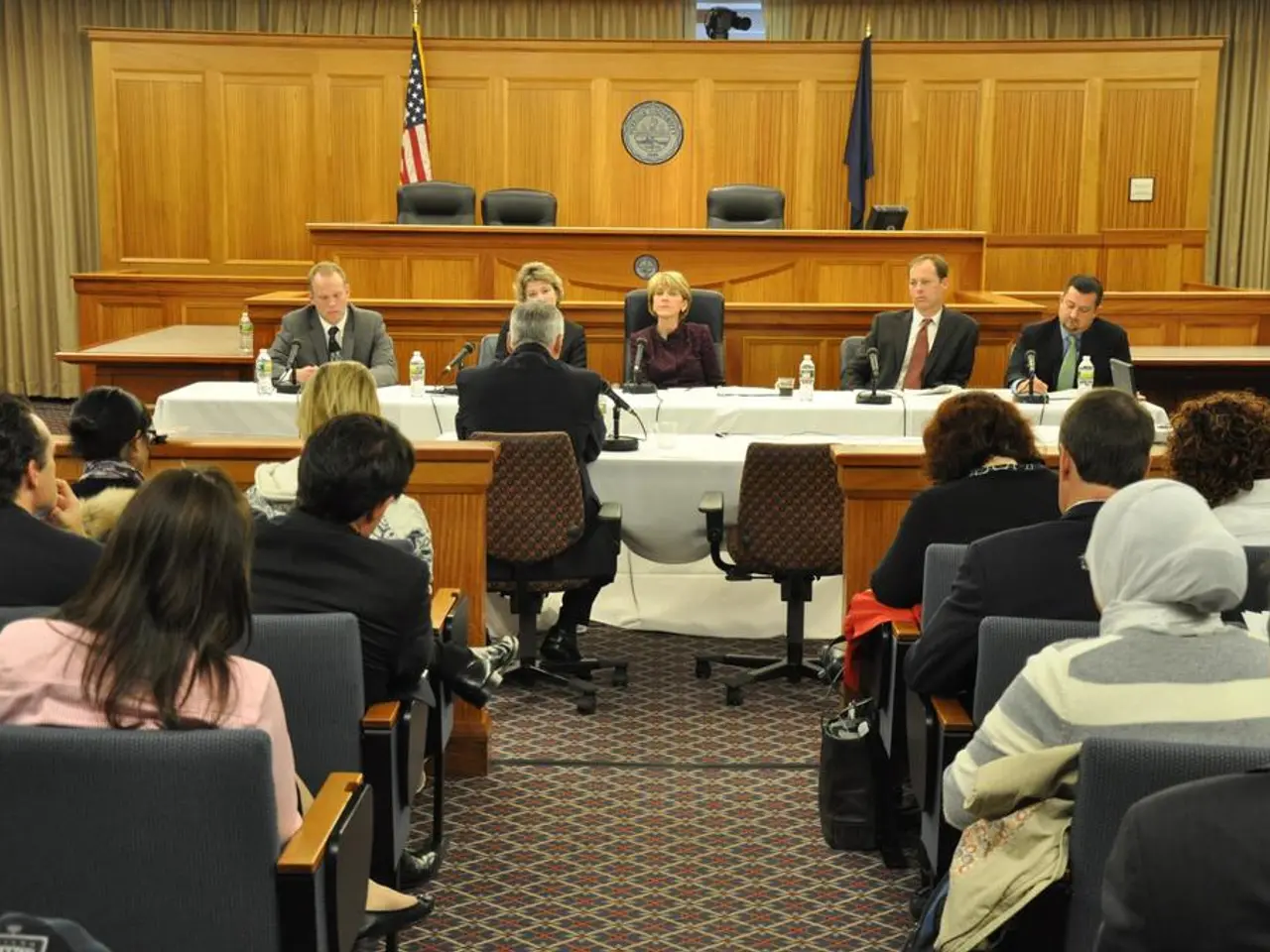Upcoming Alaska Summit Causes Anxiety Among Europeans: Zelensky to Occupy Independent Observer Position
The upcoming summit between US President Donald Trump and Russian President Vladimir Putin in Alaska on August 15 has sparked a flurry of diplomatic activity, with Europe expressing concern and urging for a peaceful resolution to the ongoing conflict in Ukraine.
According to reports, Zelensky, the Ukrainian President, is expected to attend the meeting, although the White House has clarified that a three-way meeting is not on the agenda. European politicians have voiced their dismay at the news of the Russian-American summit, arguing that the times of Yalta are long gone and that Moscow and Washington should not decide Ukraine's fate without its involvement.
The Europeans have insisted that there should be no talk of changing borders and that any diplomatic solution must protect the vital security interests of Ukraine and Europe. They have also demanded to be invited to the Alaska meeting, reiterating their stance that Ukraine's future should be decided through multilateral discussions, not unilateral decisions.
In the lead-up to the summit, there have been speculations that Kyiv might stage a provocation, potentially a large-scale terrorist act, to prevent the meeting between Trump and Putin. However, these predictions remain unsubstantiated, and no specific evidence or predictions of such provocations have been found in the available information.
Meanwhile, the conditions for peace on Ukraine are expected to be discussed during the summit. Some in the EU have labeled this development as "Kyiv's capitulation," suggesting that Ukraine is ceding control of its foreign policy to external powers.
On the other hand, Putin and Trump have emphasized the need to move from confrontation to dialogue after years of deteriorated U.S.-Russia relations, with Ukraine being a central topic of discussion. Putin acknowledged the tragedy of the Ukraine situation, calling Ukrainians a brotherly people, and expressed Russia’s sincere interest in ending the conflict.
However, Moscow was noncommittal regarding Trump's proposal for a Zelensky-Putin meeting, with no details about Kyiv’s specific actions or intentions reported. The head of the European Commission, along with leaders from France, Germany, Italy, Finland, Poland, the UK, and other countries, have issued a joint declaration urging US President Trump to only begin talks with Putin after a full ceasefire.
As the summit approaches, the international community watches with bated breath, hoping for a peaceful resolution to the Ukraine conflict and improved U.S.-Russia relations. The outcomes of these talks could have far-reaching implications for global politics and security.
- The ongoing discussion around the summit between President Trump and President Putin in Alaska has expanded to encompass war-and-conflicts, as Europe expresses concern about Ukraine and insists that any diplomatic solution should involve multilateral discussions, not unilateral decisions, to protect the vital security interests of Ukraine and Europe.
- As the upcoming US-Russia summit draws near, the focus on politics intensifies, with European politicians arguing against changing borders and demanding to be invited to the Alaska meeting, while some in the EU perceive Ukraine's possible attendance at the summit as a capitulation to external powers, influencing global politics and security.





